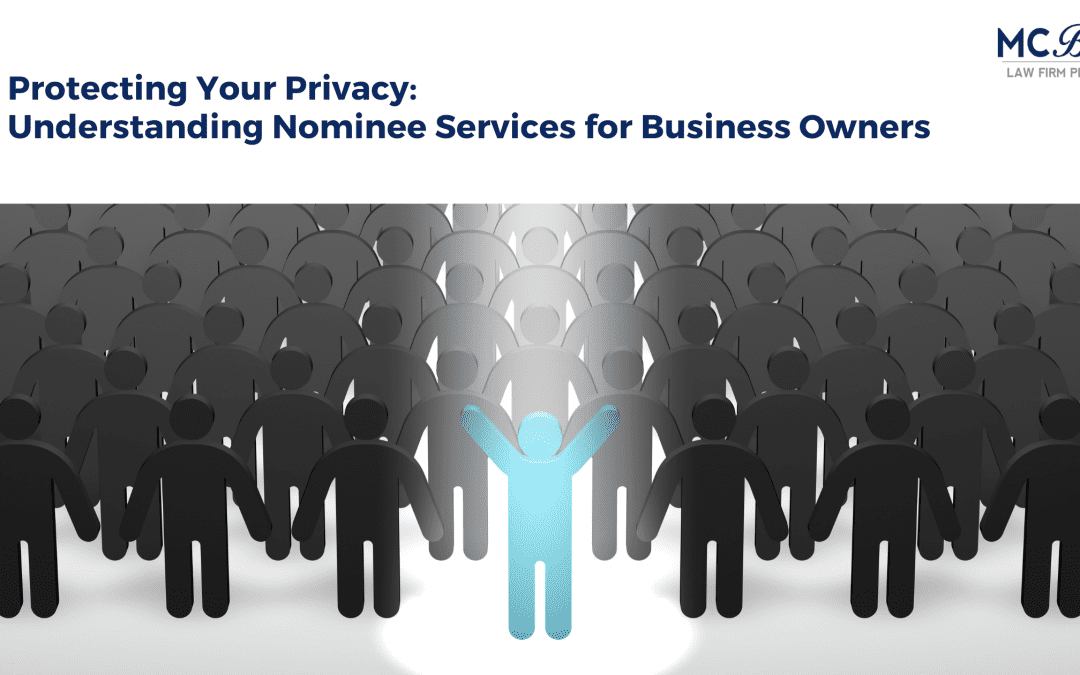Dislike being in the spotlight as a business owner? Maintaining personal privacy in the public domain is a common concern. The solution? Nominee services. These services allow you to use a nominee’s personal information on official business records, keeping your identity confidential while adhering to legal requirements.
What Is a Nominee?
A nominee is an individual or corporate entity that lends its name to safeguard someone else’s identity, as per The World Bank’s Stolen Asset Recovery Initiative (StAR). Nominees can be friends, family, or professionals such as accountants or lawyers. Business owners often opt for companies offering nominee services rather than individuals.
Types of Nominees
There are two main types of nominees: Directors and Shareholders. Both remain in effect for a year, and the true owner can revoke or renew the nominee service at any time.
Nominee Directors:
Act as company directors, appointed to roles like treasurer, president, or secretary. They are listed on business records, with the nominee’s personal information replacing the owner’s.
Nominee Shareholders:
Hold company shares on behalf of the true owner. Appointed via a declaration of trust, they follow the owner’s instructions for share allocation and transfers. Understanding Nominee Services
Before opting for nominee services, consider the following:
Gaining Privacy from Non-Governmental Institutions: Nominee services can protect your identity from non-governmental institutions, keeping asset allocations and investment strategies confidential. Revealing the Owner’s True Identity: While nominees shield your identity from the public, you can choose to reveal it later if beneficial for the business. Remaining Involved in Business Activities: As the true owner, you control the company and actively participate in daily business activities. Drawbacks of Using Nominees
Risks associated with using nominees include:
Nominee acts contrary to the agreement: Legal disputes may arise if the nominee breaches the agreement, potentially causing damage to the business and revealing the owner’s identity. Nominee becomes incapacitated or dies: Issues may arise if the nominee is unable to fulfill their role due to incapacity or death, impacting the business. Potential for fraud: A trusted nominee may inadvertently commit fraud due to a lack of knowledge of laws, posing a risk to the business. Alternative Privacy Measures
Consider using a specific business address for public documents, establishing the business in a state with privacy-friendly regulations, or creating multiple LLCs to maintain privacy.
Contact us, your Estate and Succession Planning Attorney, To Learn More About How a Nominee Can Protect Your Privacy
Securing your personal privacy as a business owner is essential, and consulting an Estate and Succession Planning Attorney plays a crucial role in this process. A Family Wealth and Estate Attorney with expertise in family business planning can provide guidance on the legal and financial aspects, ensuring the protection of your privacy while you concentrate on the growth of your business. Reach out to us today for individualized assistance, offering you peace of mind in managing your affairs.
This article is presented by Michelle Bell, an expert in estate planning and business succession services. Our office provides comprehensive legal support for businesses, assisting you in making informed decisions throughout your entrepreneurial journey and in planning for future contingencies. We also offer a specialized session where we review your business’s legal structures. To arrange this consultation, please click the following link: https://calendly.com/mcblawpllc/30min.
The information in this article is intended purely for educational and informational use and should not be considered as advice on ERISA, tax, legal, or investment matters. For advice specifically tailored to your unique situation, such advice should be sought independently from this educational content.

